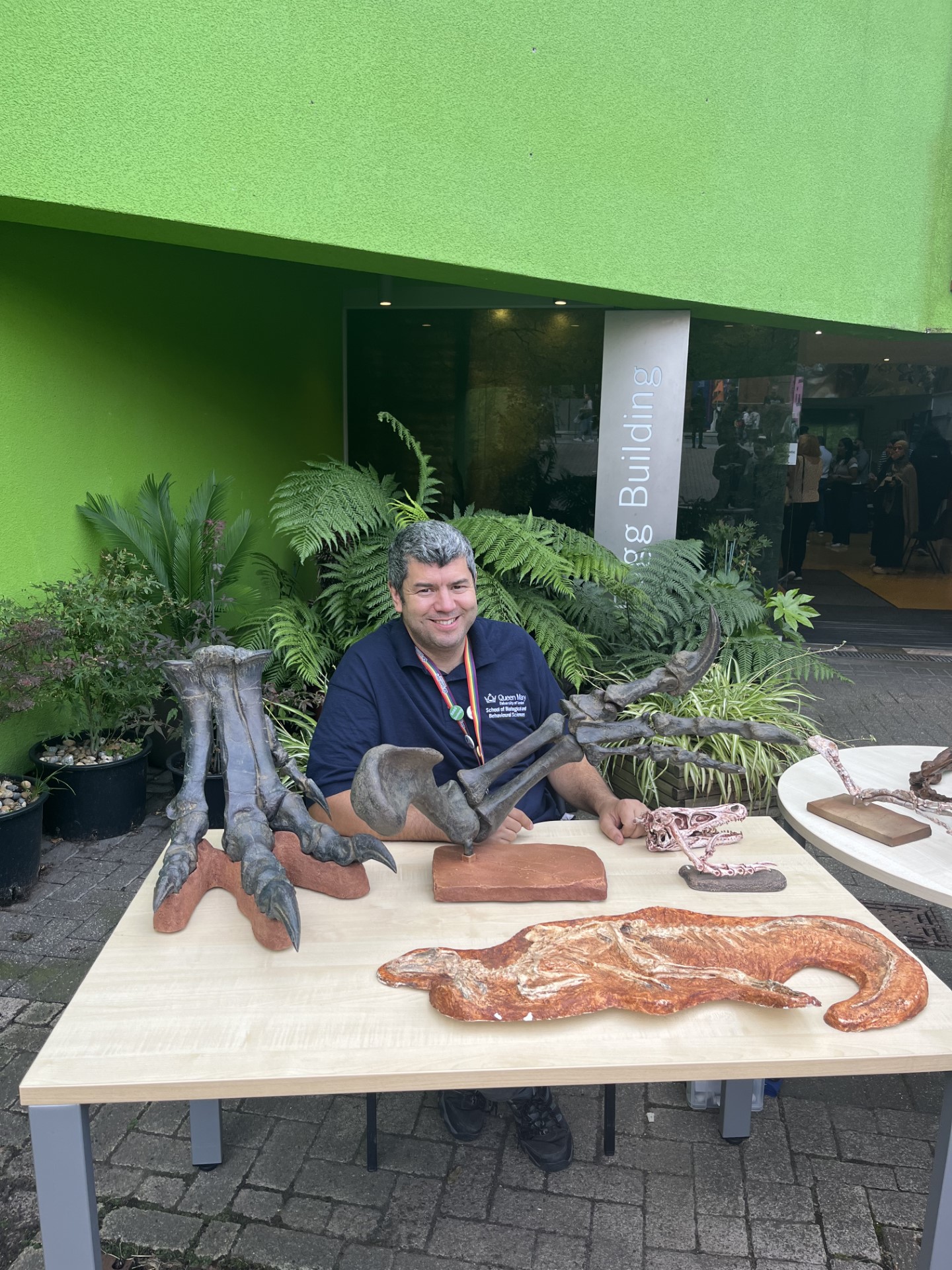Academic perspective: David Hone, Senior Lecturer in Zoology
David Hone is Senior Lecturer in Zoology at the School of Biological and Behavioral Sciences (SBBS) at Queen Mary University of London. He joined SBBS in 2012, after completing his PhD and working in postdoctoral and teaching positions in Dublin, Beijing and Munich.

He holds a number of other responsibilities, including as Director of Outreach for The School of Biological and Behavioural Sciences, and teaches on numerous modules. In addition to acting as Staff Liaison for the Queen Mary Biological Society, David is part of the Teaching Interest Group and Education Research (TIGER) team, which aims to support teaching staff and share good practice.
What do you enjoy most about your role?
University and academia are great and I really like teaching the students. Being asked a good question, or when someone says they’ve really understood something or discovered a new interest, makes an enormous difference – it’s so rewarding. I also love teaching the field courses. It’s a different type of teaching, a totally different environment, and you can engage the students in a different way to how you would in a classroom.
The field courses have proved extremely popular too, going to places like South Africa – they’re great fun. It does require teaching with adaptability. When we’re out in Canada* hunting dinosaurs, we don’t know what we’re going to pull out of the ground. On a day-to-day, hour-to-hour basis, we don’t know what we’re going to find. It could be a Tyrannosaur tooth or a herbivore foot or a Ceratopsian horn. Whether it’s young or old, male or female, juvenile or adult, what its history is, who knows what we might find? So it is, to a certain degree, 'teach as you go' – which can be difficult but also extremely exciting.
*Please note, the Canada trip no longer runs.
What research areas are you currently working on?
I work primarily on dinosaurs and pteroasaurs, the flying reptiles which lived alongside dinosaurs. The pterosaurs are extremely rare fossils so you have to get the best out of what you dig up. Some fossils are good for looking at wings, some are good for flight, others good for diet and evolution. With dinosaurs, what I’m really interested in is their behaviour and ecology – what are they doing? Where are they living? Who are they eating? In particular, how are they interacting? This can be both communication within species and predator-prey relationships and combat between species. In some ways that’s much easier than the pterosaurs, as there are just far more fossils to work with.
In the last few years, working with Rob Knell and our PhD student Andy Knapp, we’ve been looking at sexually selected traits and competition traits such horns, frills, crests, armour – anything that makes you look more appealing and impressive in some way. We've had some of our research in this area published recently.
Do you have any advice for students interested in Zoology?
Engage with your course, as there are so many areas and huge gaps in our knowledge. For every amazing piece of research that has been done in one species of fly, for example, it might not have been done with the 100,000-plus species of fly, and there could be huge differences in findings. Be aware of the size of the subject and look to see how things intersect. It’s very easy to do separate modules on physiology, ecology and genetics and think of them as separate entities. But your physiology can massively influence your behaviour and how you fit into an ecosystem, which is partially determined by your genetic background, which is selected by your behaviour, and it’s all interconnected. If you can see how these diverse ideas fit together and are interrelated, this will be a huge advantage.
What do you like to do outside of work?
I enjoy travelling. I’ve been to about 30 countries, and plan to go to many more in the future. I keep lots of animals such as frogs, geckos, spiders and rabbits as I love being around animals. But I also still do my research because it’s what I’m interested in.